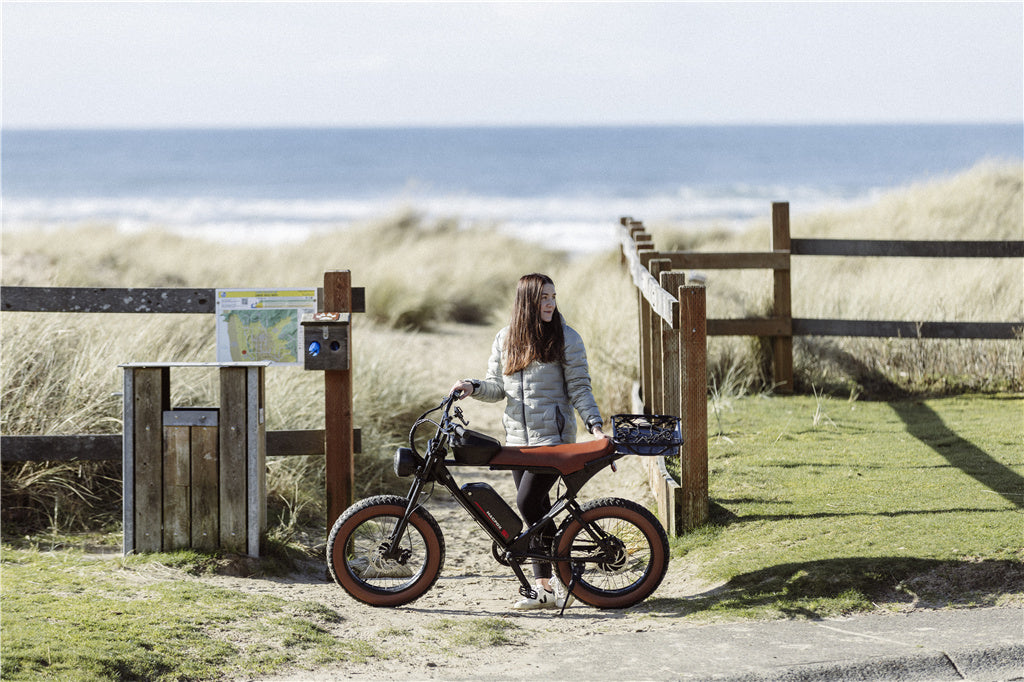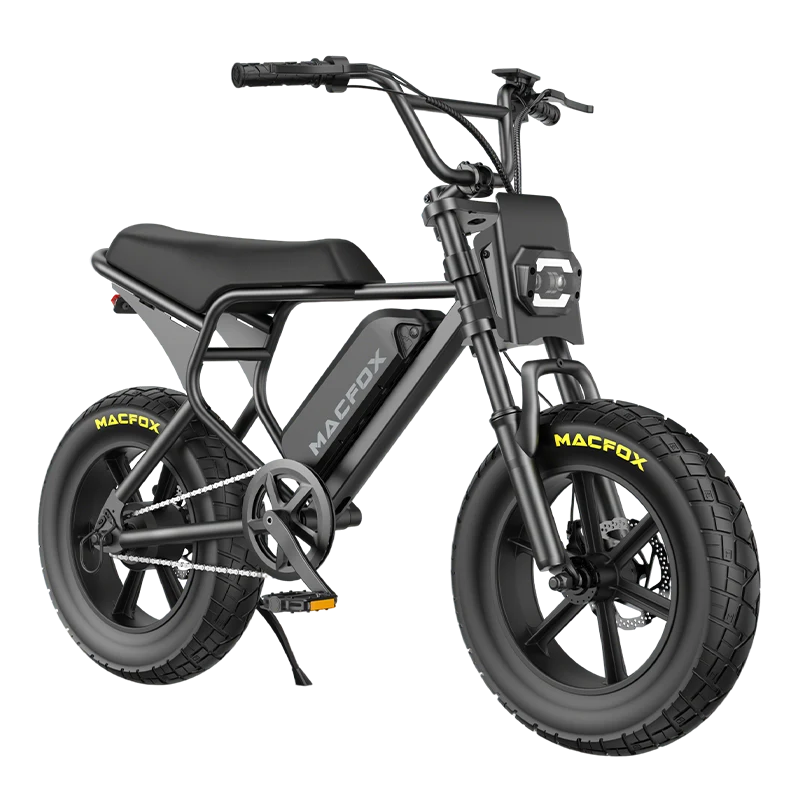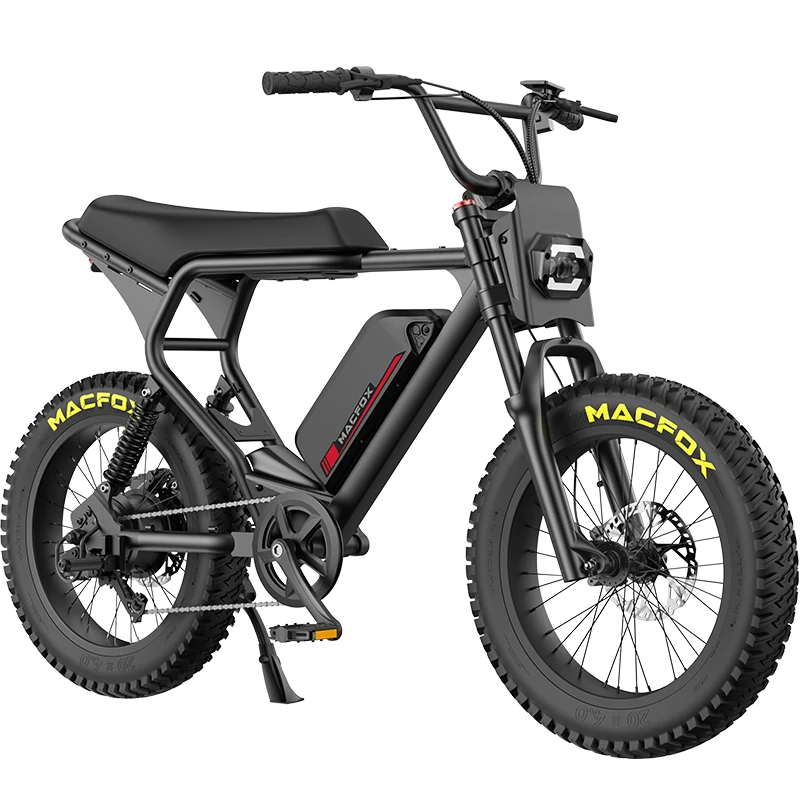Ready to energize your ride with the power of a 500-watt electric bike? Whether you're looking to conquer the mountains, feel the wind as you accelerate, or are looking for a reliable and efficient way to commute, a 500W e-bike might be your best choice. This guide helps you understand how these e-bikes work, from recognizing the benefits of a 500-watt electric motor to choosing the model that best suits your riding desires and daily needs. Let’s examine the world of e-bikes, where power meets sustainability, and uncover the experience of your dreams.
Electric Bike Power Explained

When diving right into electrical bikes (e-bikes), one of the first terms you'll encounter is the electric motor's power result, measured in watts (W). This number is pivotal since it directly influences the bike's rate, velocity, array, and ability to deal with slopes. Power output in electrical bikes typically ranges from 250W to over 1000W, each offering various riding demands and choices.
Recognizing exactly how watts equate to real-world efficiency can assist you in choosing the appropriate e-bike. A higher electrical power suggests even more power, enabling faster speeds and more robust hill-climbing capabilities. Nevertheless, it indicates a potentially higher rate, raised weight, and, in some regions, more strict laws regarding where you can ride without a permit.
The Essence of 500W Electric Bikes
Currently, 500W electric bikes are usually considered the happy medium in the e-bike power range. With a 500W electric motor, you're geared up with enough power to delight in a quick trip, getting to speeds that make city commuting reliable and electrifying yet still workable for many riders.
Why Choose a 500W Electric Bike?
-
Balanced Performance: A 500W electric motor provides a pleasant balance between speed and variety. It's powerful enough to keep your commute fast and satisfying yet not so effective that it drastically minimizes your e-bike's range for a single fee.
-
Flexibility: These bikes strike a balance between being agile enough for city riding and durable enough to handle light off-road trails. The power output is sufficient for most hills you would certainly experience in an urban or suburban setting.
-
Regulative Compliance: In many locations, e-bikes with electric motors up to 500W can be ridden without special licenses, making them obtainable to a more comprehensive target market. However, it's always essential to check neighborhood policies as they differ commonly.
Continuing with the guide, we'll dig deeper into how quickly a 500W electric bike can go, its array of capacities, climbing up expertise, and the benefits and downsides of opting for this power degree. We'll additionally contrast 500W to 1000W e-bikes to help you recognize the differences and make an informed choice that matches your riding design and needs.
How Fast Can a 500W Electric Bike Go?
When it comes to speed, a 500W electric bike strikes a balance that many discover perfect. Generally, these e-bikes can accomplish top speeds of 20-25 mph (32-40 km/h), a vigorous rate that allows for reliable traveling and pleasurable leisure adventures. However, the real top speed can vary based on numerous aspects, including the cyclist's weight, the surface, and even wind resistance.
For many bicyclists, speeds in this variety provide an excellent spot: quick enough to make adventures thrilling and significantly minimize traveling time, yet not so fast regarding the need for special delivery abilities or additional safety and security gear past the usual safety helmet. In several jurisdictions, this rate array straightens well with lawful requirements, permitting these bikes on most bike courses and metropolitan roadways without a permit.
Distance: How Far Can You Go?
The range is essential for numerous e-bike customers, especially those looking to change cars and truck trips or utilize their bikes for long weekend adventures. On a solitary cost, a 500W electric bike can usually cover 25-50 miles (40-80 kilometers). This variety is influenced by elements such as the battery's capacity (gauged in watt-hours), the cyclist's weight, the riding rate, and the quantity of pedaling help given by the cyclist.
If you plan to utilize your e-bike for commuting, this array must conveniently cover most everyday distances with some power to spare. Thinking about a bike with a higher-capacity battery or preparation for mid-route billing is a sensible approach for longer trips or those who use minimal pedal aid.
Related Reading: Why Are E-Bikes Not Cheap?
The 500W Electric Bike Series
The market provides a variety of 500W electric bikes, each created to meet different needs.
From smooth city versions to rugged mountain bikes, your choice among the 500W e-bike range depends on your personal riding preferences and the type of journey you're prepared to undertake. For example, the X1 electric commuter bike launched by Macfox is equipped with a 500W geared hub motor and can travel 38 miles per charge (76 miles with dual batteries).
Climbing Hills with a 500W Electric Bike
One of the most common concerns concerning electric bikes is how well they deal with hillsides. A 500W e-bike offers a robust answer for the majority of cyclists. Thanks to the substantial torque produced by a 500W motor, these bikes can tackle inclines that would be challenging or laborious on a typical motorcycle. While they might not ascend steep hillsides as effortlessly as higher-powered e-bikes, they are more than capable of metropolitan atmospheres and moderate hills.
The bike's performance on inclines will also depend on elements such as the equipment system, the motorcyclist's weight, and the steepness of the capital. Most 500W e-bikes come with numerous pedal-assist setups, enabling riders to readjust the degree of assistance they receive. A higher help setting can make a considerable distinction, especially on steep hills, allowing the riders to ascend with much less initiative while still appreciating the physical advantages of cycling.
Is 500 Watts "Enough" for an Electric Bike?
Whether 500 watts is "sufficient" for an electric bike depends on what you expect from your e-bike experience. For many bikers, a 500W motor strikes the pleasant spot, providing a blend of power, rate, and performance that fits a wide variety of biking needs.
Key Considerations:
-
Urban Commuting and Casual Riding: For city slickers and those using their bike mainly for commuting or recreation trips, 500 watts supply ample power to navigate flat to moderately uneven surfaces, maintain legal rate limits, and ensure a smooth trip without requiring regular re-energizing.
-
Variety vs. Power: A 500W electric motor commonly provides an equilibrium between maintaining a respectable speed and preserving battery life, allowing for a respectable range on a single charge. This makes it an exceptional option for those seeking to make the most of distance without giving up excessive efficiency.
-
Price and Weight: E-bikes with 500W motors typically have a lower rate point and are lighter than their more powerful counterparts. This makes them more accessible to a broader audience and easier to handle, both while riding and when carrying the bike upstairs or filling it into a car.

Advantages and Disadvantages of 500W Electric Bikes
| Advantages | Disadvantages |
|---|---|
| Versatility: Ideal for a wide range of activities, from commuting to light off-road use. | Limited Speed: May not satisfy those seeking high-speed thrills. |
| Balance: Strikes a good balance between speed, range, and power, without overly draining the battery. | Hill Climbing: Capable of moderate inclines but may struggle with very steep hills compared to more powerful options. |
| Cost-Effective: Generally more affordable and requires less maintenance than higher-powered e-bikes. | Range Anxiety: For long-distance riders, even though the range is substantial, planning for recharges is crucial. |
| Accessibility: Faces fewer legal restrictions, making it easier to use in urban and suburban areas. |
500W vs. 1000W Electric Bikes: Key Differences
| Feature | 500W Electric Bikes | 1000W Electric Bikes |
|---|---|---|
| Speed | Suitable for urban commuting, with top speeds around 20-25 mph (32-40 km/h). | Higher top speeds, capable of exceeding 28 mph (45 km/h), offering more thrill. |
| Range | Offers a balanced range of 25-50 miles (40-80 km) on a single charge, depending on conditions. | Potentially similar range but tends to consume battery faster due to higher power output. Larger batteries can offset this. |
| Hill Climbing | Capable of handling moderate inclines with ease, but may struggle with steep hills compared to higher wattage bikes. | Superior hill-climbing capabilities, effortlessly tackling steep inclines with minimal rider effort. |
| Regulations | Generally faces fewer restrictions, allowed on most bike paths and urban areas without a license. | May face more stringent regulations, including restrictions on where they can be ridden and potential licensing requirements. |
| Cost & Weight | Typically more affordable and lighter, making them easier to manage and transport. | Usually more expensive and heavier due to the more powerful motor and larger battery. |
500W vs. 750W Electric Bikes: Key Differences
| Feature | 500W Electric Bikes | 750W Electric Bikes |
|---|---|---|
| Speed | Top speeds around 20-25 mph (32-40 km/h), suitable for urban commuting. | Slightly higher top speeds up to 28 mph (45 km/h), offering more power and faster acceleration. |
| Range | Balanced range of 25-50 miles (40-80 km) per charge, depending on conditions. | Slightly reduced range per charge due to increased power, typically 20-45 miles (32-72 km), but depends on battery capacity. |
| Hill Climbing | Handles moderate inclines well but may struggle with steeper hills. | Superior torque for better hill climbing, tackling steeper inclines more efficiently. |
| Regulations | Generally fewer legal restrictions and permitted on most bike paths without a license. | May face more regulations depending on local laws, though often still permissible for bike paths. |
| Cost & Weight | More affordable and lightweight, making it easier to transport and manage. | Slightly higher cost and weight due to increased motor power, which may affect handling and transportability. |
| Versatility | Great for urban commuting and light off-road use. | More versatile for mixed-use, including moderate off-road trails and urban commuting with extra power. |
| Battery Consumption | Efficient on power, offering a good balance between performance and battery life. | Higher power output leads to faster battery consumption, so larger or dual batteries might be needed for long rides. |
Final thought
When deciding between a 500W and a 1000W electric bike, it’s all about balancing your need for speed and power with practical factors like cost, weight, and where you plan to ride.
If you’re looking for a versatile, efficient, and budget-friendly option for city streets or light trails, a 500W e-bike is a fantastic choice.
On the other hand, if you crave higher speeds, longer rides, and the ability to tackle steep hills effortlessly, investing in a 1000W model might be worth it.
No matter which route you go, e-bikes bring a whole new level of freedom, excitement, and adventure to your rides.
Ready to take your biking experience up a notch? A 500W e-bike strikes a perfect balance of power, speed, and versatility, making it a great fit for many riders.
Whether you’re commuting, exploring, or just enjoying the ride, knowing what a 500W bike can do will help you pick the right companion for your journeys.
FAQs
Can a 500W electric bike manage steep hills?
Yes, a 500W electric bike can handle moderate slopes quite well, though it might struggle with very high hillsides compared to more effective bikes.
What is the regular series of a 500W electric bike at a solitary cost?
The array can differ; however, a 500W electric bike commonly uses between 25-50 miles (40-80 kilometers) at a solitary cost, depending on terrain, cyclist weight, and riding design.
Are there any lawful constraints for riding a 500W electric bike?
500W electric bikes have fewer limitations in many regions and can be ridden on most bike paths and urban areas without a certificate. Nonetheless, it is necessary to inspect local laws, as policies can vary.


















